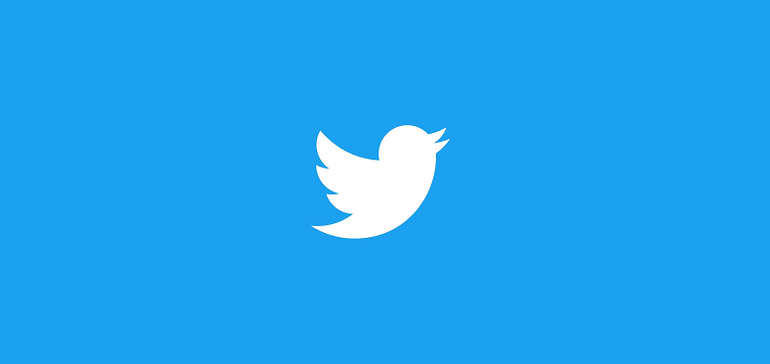SOCIAL
Elon Musk Launches Hostile Takeover Bid for Twitter

Well, I don’t think anyone saw this coming, not in any realistic sense at least.
But evidently, Elon Musk is serious about his push to better align Twitter with free speech principles, with the billionaire Tesla CEO offering a full, $43 billion hostile takeover bid for the app.
As per Musk’s note to the SEC:
“I invested in Twitter as I believe in its potential to be the platform for free speech around the globe, and I believe free speech is a societal imperative for a functioning democracy. However, since making my investment I now realize the company will neither thrive nor serve this societal imperative in its current form.”
Musk has been a vocal proponent of free speech, and has often criticized Twitter’s moderation efforts, including its decision to ban former US President Donald Trump.
Last week, before it was revealed that Musk was buying up Twitter shares (which he’s actually been accumulating steadily since January), Musk noted that Twitter needs to adhere to ‘free speech principles’ to truly serve its purpose.
Given that Twitter serves as the de facto public town square, failing to adhere to free speech principles fundamentally undermines democracy.
What should be done? https://t.co/aPS9ycji37
— Elon Musk (@elonmusk) March 26, 2022
That’s seemingly the impetus for Musk’s takeover bid, with Musk now outlining a vague plan to take Twitter into private ownership, in order to reduce its reliance on shareholders and ad dollars, thereby enabling it to make truly independent decisions for the good of public debate.
“I am offering to buy 100% of Twitter for $54.20 per share in cash, a 54% premium over the day before I began investing in Twitter and a 38% premium over the day before my investment was publicly announced. My offer is my best and final offer and if it is not accepted, I would need to reconsider my position as a shareholder.”
Market analysts say that Musk’s offer is low, given that Twitter shares recently reached $70. But it could still be tempting, and it is enough to at least be taken seriously as a legitimate takeover bid.
If Musk’s takeover offer is accepted, Twitter will likely see significant changes, and really, all bets are off as to what then happens to the app. But if the bid is rejected, Musk has suggested that he will likely withdraw from the company completely.
“If the deal doesn’t work, given that I don’t have confidence in management, nor do I believe I can drive the necessary change in the public market, I would need to reconsider my position as a shareholder. This is not a threat, it’s simply not a good investment without the changes that need to be made.”
It’ll be interesting to see if that also includes Musk deleting his Twitter account, which currently has over 81 million followers, and is a key media tool for the sometimes eccentric billionaire.
Following the revelation that Musk had become Twitter’s biggest individual shareholder earlier in the month (till Vanguard Group bought up more shares to overtake him), Musk began polling his Twitter followers on questions about how to ‘fix’ the platform. Musk was seemingly then advised to stop tweeting critical commentary, as a pending Twitter board member, which then lead to Musk withdrawing his interest in joining the board entirely.
It seems that Musk was dissatisfied with the response that he received from Twitter management, as he’s now looking to replace them wholesale, and start afresh with the company.
It’s an extraordinary move, and one that again raises questions about the disproportionate power of the billionaire class. Former Amazon CEO Jeff Bezos, for example, owns The Washington Post, and some have suggested that it’s now more favorable to Bezos’ positions in its editorial coverage (note: independent studies have found little to no evidence of bias in the Post’s reporting since Bezos’ acquisition).
Meta CEO Mark Zuckerberg holds significant power as the owner of several of the most utilized social media apps, while Apple and Google, while not independently controlled by a single wealthy founder in the same way, can also exert a level of control over media reach via their highly used digital properties.
In Musk’s case, he clearly doesn’t like what Twitter is doing, and being rich enough as he is, he’s seeking to do something about it, which could have significant consequences, in many ways.
On balance, I would say that the likelihood of Musk’s takeover offer being accepted is not high – but then again, I’d have never guessed that Musk would make such an aggressive push on Twitter shares, or indeed that he’d move into hostile takeover mode for the app.
So, who knows how this plays out? In some ways, it seems like just enough of an offer to be taken seriously, but not enough to be actually accepted.
But maybe Twitter will become ‘Tesla Social’, and memes and in-jokes about ‘420’ (note Musk’s offer price) and every other ‘edgelord’ trend will dominate in this new ‘free speech’ led cesspit.
It’s pretty concerning to think about – but maybe, this could actually happen, which could spell the end for Twitter as we know it.
SOCIAL
Snapchat Explores New Messaging Retention Feature: A Game-Changer or Risky Move?

In a recent announcement, Snapchat revealed a groundbreaking update that challenges its traditional design ethos. The platform is experimenting with an option that allows users to defy the 24-hour auto-delete rule, a feature synonymous with Snapchat’s ephemeral messaging model.
The proposed change aims to introduce a “Never delete” option in messaging retention settings, aligning Snapchat more closely with conventional messaging apps. While this move may blur Snapchat’s distinctive selling point, Snap appears convinced of its necessity.
According to Snap, the decision stems from user feedback and a commitment to innovation based on user needs. The company aims to provide greater flexibility and control over conversations, catering to the preferences of its community.
Currently undergoing trials in select markets, the new feature empowers users to adjust retention settings on a conversation-by-conversation basis. Flexibility remains paramount, with participants able to modify settings within chats and receive in-chat notifications to ensure transparency.
Snapchat underscores that the default auto-delete feature will persist, reinforcing its design philosophy centered on ephemerality. However, with the app gaining traction as a primary messaging platform, the option offers users a means to preserve longer chat histories.
The update marks a pivotal moment for Snapchat, renowned for its disappearing message premise, especially popular among younger demographics. Retaining this focus has been pivotal to Snapchat’s identity, but the shift suggests a broader strategy aimed at diversifying its user base.
This strategy may appeal particularly to older demographics, potentially extending Snapchat’s relevance as users age. By emulating features of conventional messaging platforms, Snapchat seeks to enhance its appeal and broaden its reach.
Yet, the introduction of message retention poses questions about Snapchat’s uniqueness. While addressing user demands, the risk of diluting Snapchat’s distinctiveness looms large.
As Snapchat ventures into uncharted territory, the outcome of this experiment remains uncertain. Will message retention propel Snapchat to new heights, or will it compromise the platform’s uniqueness?
Only time will tell.
SOCIAL
Catering to specific audience boosts your business, says accountant turned coach

While it is tempting to try to appeal to a broad audience, the founder of alcohol-free coaching service Just the Tonic, Sandra Parker, believes the best thing you can do for your business is focus on your niche. Here’s how she did just that.
When running a business, reaching out to as many clients as possible can be tempting. But it also risks making your marketing “too generic,” warns Sandra Parker, the founder of Just The Tonic Coaching.
“From the very start of my business, I knew exactly who I could help and who I couldn’t,” Parker told My Biggest Lessons.
Parker struggled with alcohol dependence as a young professional. Today, her business targets high-achieving individuals who face challenges similar to those she had early in her career.
“I understand their frustrations, I understand their fears, and I understand their coping mechanisms and the stories they’re telling themselves,” Parker said. “Because of that, I’m able to market very effectively, to speak in a language that they understand, and am able to reach them.”Â
“I believe that it’s really important that you know exactly who your customer or your client is, and you target them, and you resist the temptation to make your marketing too generic to try and reach everyone,” she explained.
“If you speak specifically to your target clients, you will reach them, and I believe that’s the way that you’re going to be more successful.
Watch the video for more of Sandra Parker’s biggest lessons.
SOCIAL
Instagram Tests Live-Stream Games to Enhance Engagement

Instagram’s testing out some new options to help spice up your live-streams in the app, with some live broadcasters now able to select a game that they can play with viewers in-stream.
As you can see in these example screens, posted by Ahmed Ghanem, some creators now have the option to play either “This or That”, a question and answer prompt that you can share with your viewers, or “Trivia”, to generate more engagement within your IG live-streams.
That could be a simple way to spark more conversation and interaction, which could then lead into further engagement opportunities from your live audience.
Meta’s been exploring more ways to make live-streaming a bigger consideration for IG creators, with a view to live-streams potentially catching on with more users.
That includes the gradual expansion of its “Stars” live-stream donation program, giving more creators in more regions a means to accept donations from live-stream viewers, while back in December, Instagram also added some new options to make it easier to go live using third-party tools via desktop PCs.
Live streaming has been a major shift in China, where shopping live-streams, in particular, have led to massive opportunities for streaming platforms. They haven’t caught on in the same way in Western regions, but as TikTok and YouTube look to push live-stream adoption, there is still a chance that they will become a much bigger element in future.
Which is why IG is also trying to stay in touch, and add more ways for its creators to engage via streams. Live-stream games is another element within this, which could make this a better community-building, and potentially sales-driving option.
We’ve asked Instagram for more information on this test, and we’ll update this post if/when we hear back.
-

 SEO7 days ago
SEO7 days agoGoogle Limits News Links In California Over Proposed ‘Link Tax’ Law
-

 SEARCHENGINES6 days ago
SEARCHENGINES6 days agoGoogle Core Update Volatility, Helpful Content Update Gone, Dangerous Google Search Results & Google Ads Confusion
-

 SEO6 days ago
SEO6 days ago10 Paid Search & PPC Planning Best Practices
-

 MARKETING7 days ago
MARKETING7 days ago2 Ways to Take Back the Power in Your Business: Part 2
-

 MARKETING5 days ago
MARKETING5 days ago5 Psychological Tactics to Write Better Emails
-

 SEARCHENGINES5 days ago
SEARCHENGINES5 days agoWeekend Google Core Ranking Volatility
-

 PPC7 days ago
PPC7 days agoCritical Display Error in Brand Safety Metrics On Twitter/X Corrected
-

 MARKETING6 days ago
MARKETING6 days agoThe power of program management in martech














You must be logged in to post a comment Login